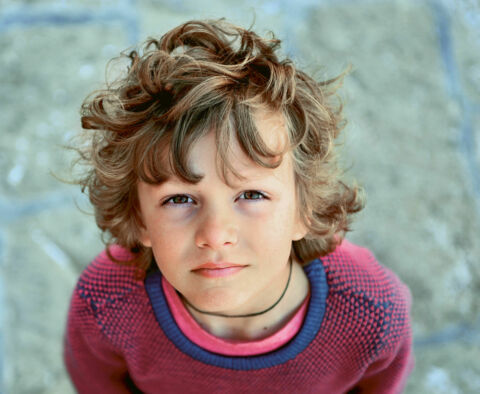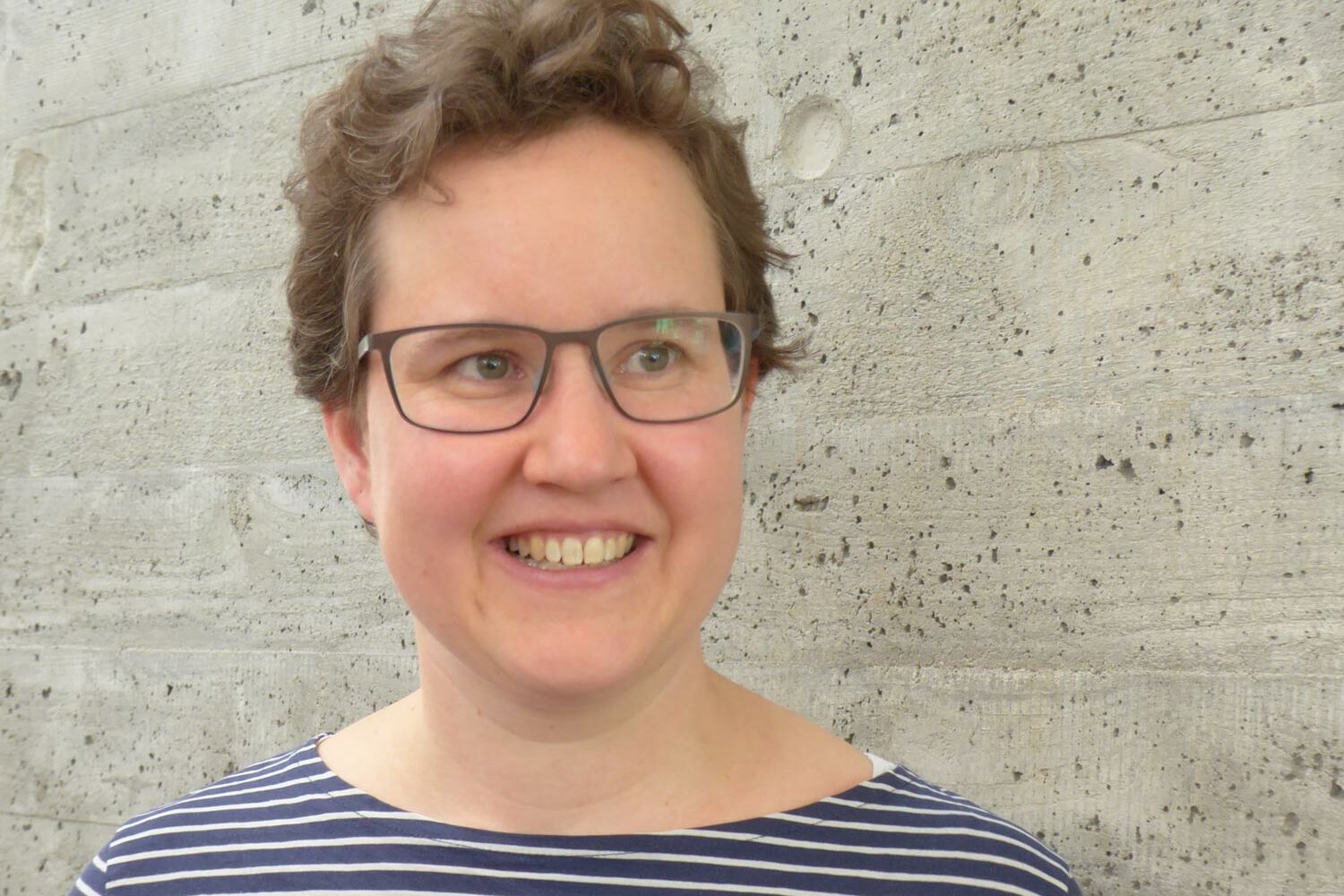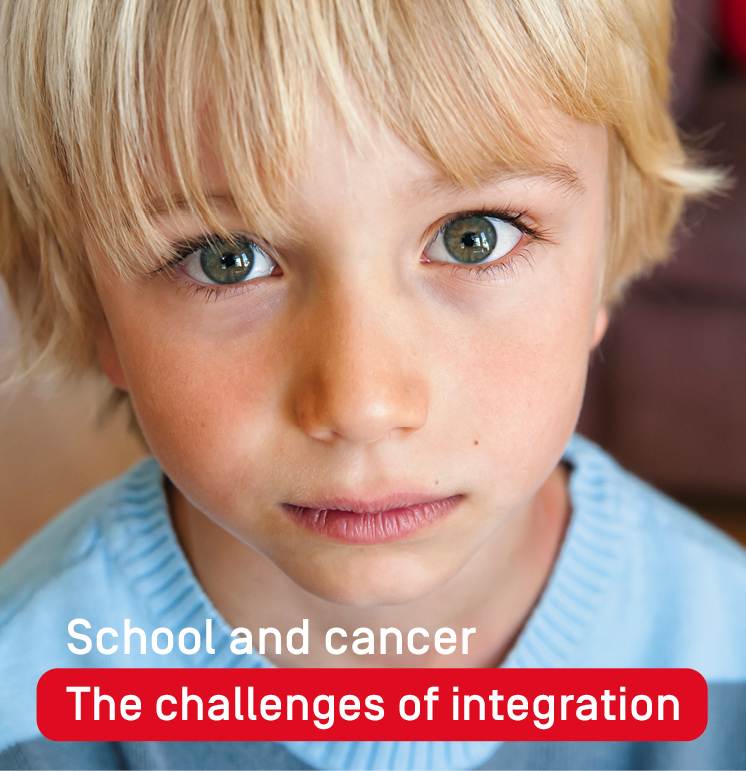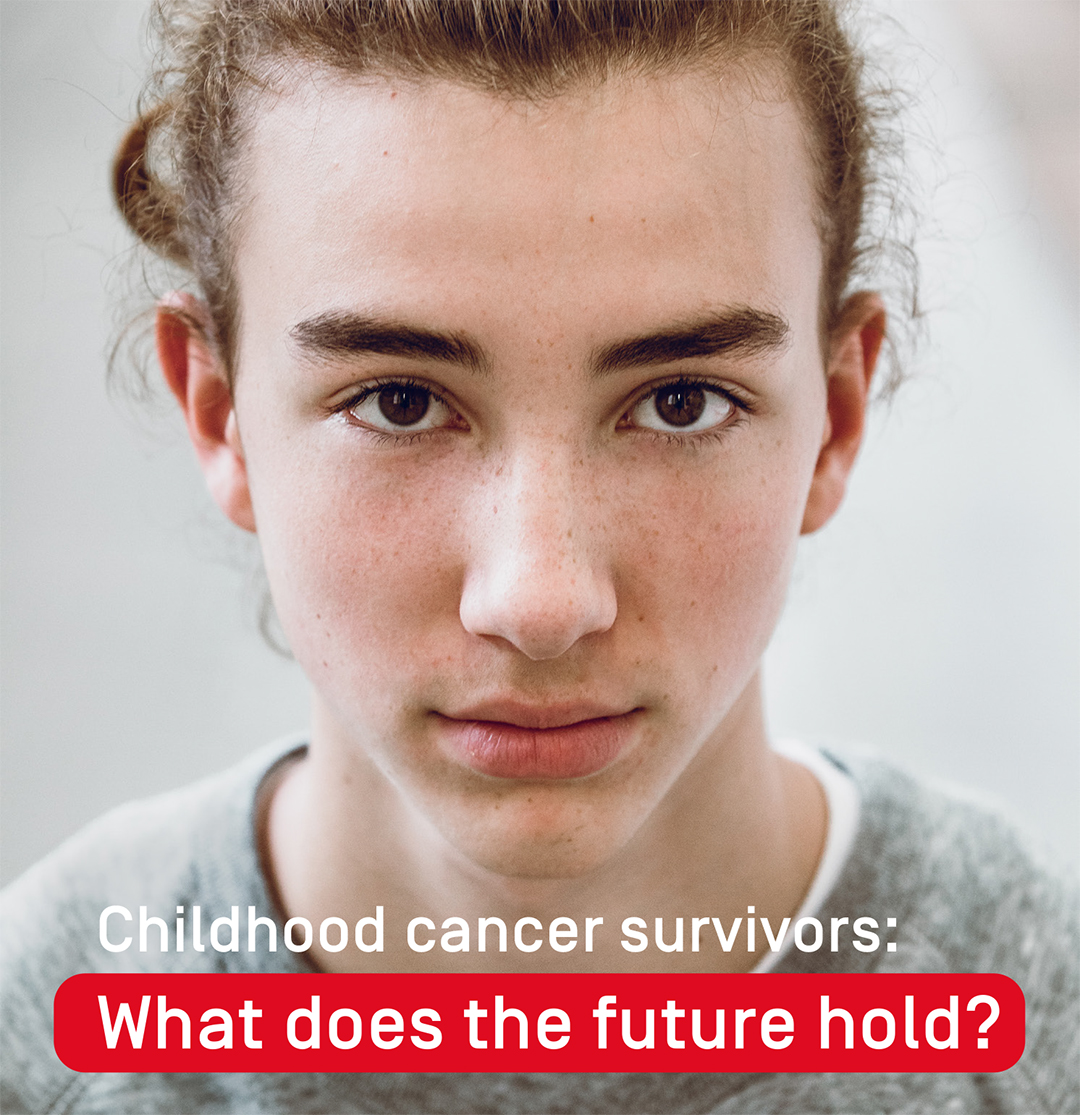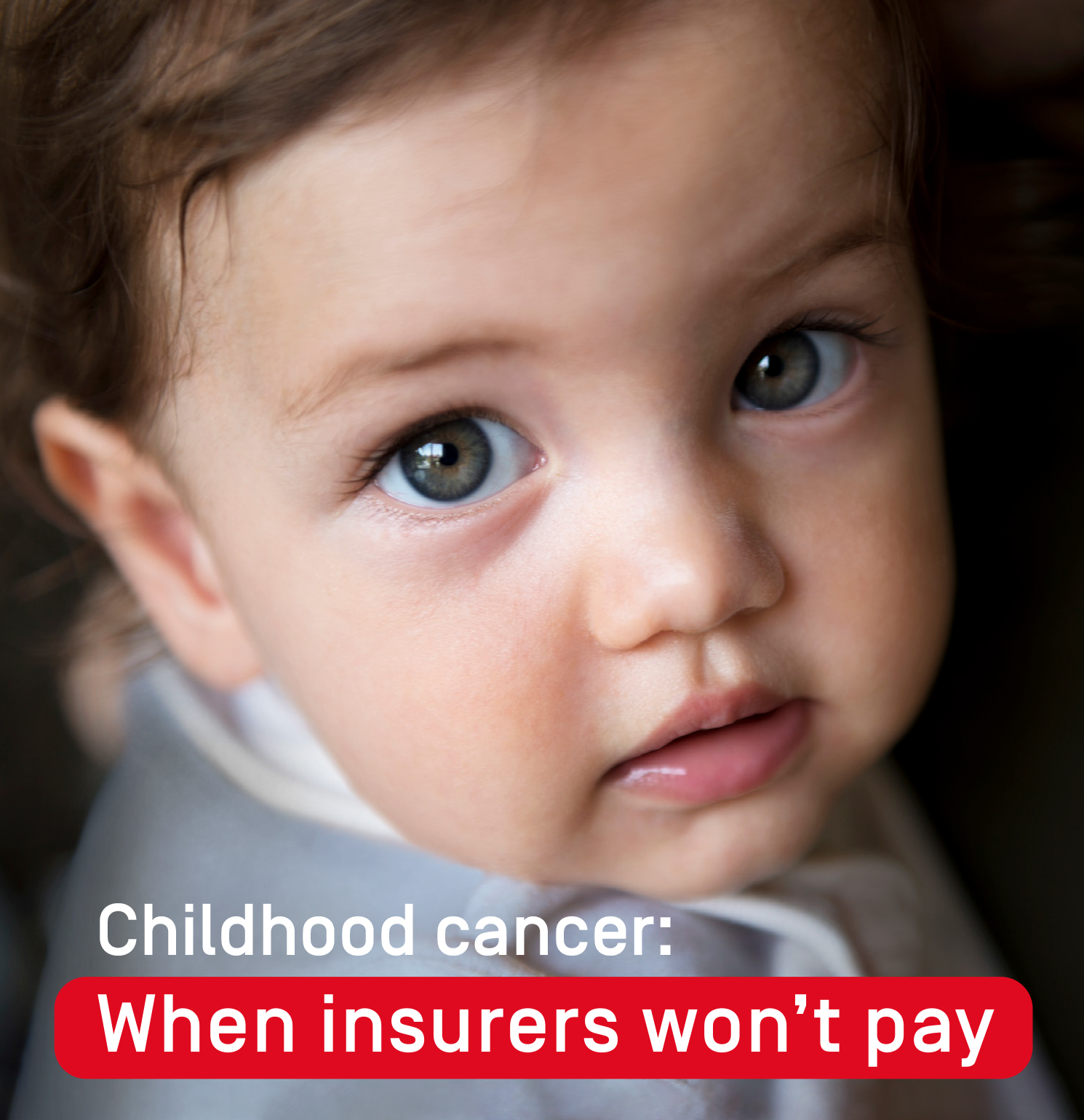In Switzerland, around 350 children and adolescents are diagnosed with cancer every year. The diagnosis is a massive shock for the whole family and the subsequent fight against the disease means an extreme burden in many respects – physically, emotionally, organisationally, and also financially. Resources and resilience vary from family to family, but what they all have in common is great fear and concern for their sick child. Although around 80 per cent of childhood cancer patients now survive, the diagnosis of the disease is the beginning of an emotional balancing act between hope and fear in order to maintain as much normality as possible. Commuting between hospital and home, long inpatient stays, caring for siblings, household, school and work – all this can only be managed with great effort and outside help. Whether relatives, friends, acquaintances, neighbours, superiors, colleagues or teachers – they can all help to make everyday life easier. Just as the families concerned and their life models vary, so do the ways in which they can be supported.
Keeping in touch: listening and offering help
Childhood cancer is a disease that develops very aggressively and requires rapid attention. Treatment is therefore started immediately after diagnosis in order to save the child’s life. Virtually overnight and without notice, the entire family life has to be rethought and reorganised. Parents often feel overwhelmed by the many demands that suddenly come their way when, in addition to caring for their sick child, they have to continue their normal everyday life with siblings, household chores and work. “When a child falls so seriously ill, the world stands still. You feel like you’re in a bubble and you try to get through the situation together as a family, somehow it works. But you need a lot of strength and there are times you just don’t have any,” says one mother. Added to this is the high psychological strain, which can last for weeks, months and sometimes years.
Many parents activate a kind of survival mode and try to carry on as best they can. Others feel almost paralysed and need a lot of support right from the beginning. Every family reacts differently in this extreme situation: what is important is to make sure you keep in regular contact with them and showing that you are thinking of them can be very helpful for those affected. In most cases, parents have no time or energy left to maintain their own social network, especially during the acute phase of treatment. This in turn plays a central role – alongside professional support. However, not all families find it easy to accept or even ask for help from their environment.
How can I help? The first step is often the most difficult because dealing with the subject of cancer is not always easy. Approaching those affected as openly as possible and showing a willingness to talk can help to break down barriers. At the beginning of the illness, the affected families usually experience a great deal of solidarity in their environment. However, experience shows that this decreases the longer the illness lasts. It is therefore important to stay in regular contact and offer help, as needs can change over the course of a long treatment period. But it is often enough to simply listen and leave out well-intentioned advice.
“The situation is overwhelming, especially when parents are first confronted with the news of the disease”
Eva Maria Tinner, paediatric oncologist at Bern University Hospital
Taking the burden off everyday life and creating small moments of relaxation
Everyday life with a child with cancer is very demanding – both physically and mentally. Often it is still the mothers who bear the brunt of things with housework, looking after siblings and caring for their sick child. If there is no supportive social environment, there is a risk of excessive demands and exhaustion as well as even depression. For some types of cancer, such as leukaemia, which is one of the most common childhood cancers, treatment can last for up to two years. This is what one mother has to say about her daughter’s lengthy treatment: “Emotionally, the situation was very draining and there were times I felt I couldn’t go on any more. I often had very little energy to do anything else, whether for the rest of the family, household chores or just the administrative things you have to take care of because of the illness.”
It is therefore all the more important for parents to have people who can help them and also to have a break or just give themselves some “me time”. In many cases, the member organisations of Childhood Cancer Switzerland help by providing various support and leisure activities for mothers and fathers (detailed information in the member organisations‘ section). Nevertheless, in the long term these offers are simply not enough on their own. “Treating cancer is a marathon, not a sprint,” says Eva- Maria Tinner, MD, paediatric oncologist and haematologist at Bern University Hospital. Relieving someone of the burden of everyday routine tasks frees up important resources that benefit not only the parents, but also the sick child and their siblings.
How can I help? It doesn’t always have to be the grand gesture. It’s often the little things that make everyday life easier as parents are effectively forced to neglect everything else to focus on their sick child. There are a number of ways others can help and there are no limits to the imagination. They can include: doing the shopping, preparing meals, doing the laundry, taking a cake round, taking on driving duties, mowing the lawn, giving the family gift vouchers, sending an encouraging card and much more. It is important to make specific offers because vaguely saying “just let me know if you need any help” is usually not enough.
“We were really lucky to have such a good social environment”
Susanne Mattle Rohrer, affected mother, whose daughter Malin was diagnosed with leukaemia at the age of 13
Employers: making the balancing act between working and caring for a child possible
One of the biggest challenges for affected families is reconciling work and childcare. Some of the first questions parents have in connection with a cancer diagnosis are: How on earth am I going to cope with everything? How will my employer react? Will I have to give up my job? The worries and fears vary from one family to the next, but for parents living on a shoestring or single parents, the illness can very quickly become a threat to their livelihood. Another risk factor is the additional costs due to the illness. These are often not covered by health and/or social insurance and quickly add up. These include, for example, travel costs, parking fees, costs for meals and accommodation away from home, for the care of siblings, for psychosocial support and for the numerous deductibles. To ensure that affected parents are better protected by law, Childhood Cancer Switzerland has successfully campaigned for care leave in recent years. The law introduced in 2021 provides for 14 weeks of care leave with protection against dismissal for parents of seriously ill children.
Even though this is a step in the right direction, this period of time is unfortunately far from sufficient for cancer treatment, which can last a year or longer. If there is no practicable follow-up solution after these 14 weeks, if one of two wages is lost completely or if the childcare allowance is not sufficient, many families are dependent on external support. For example, some of the member organisations of Childhood Cancer Switzerland provide important direct financial support for additional costs incurred because of the illness (detailed information in the member organisations‘ section). Although the support provided by individual associations and foundations is extremely valuable, there has to be an even greater commitment to improve the situation. Employers have a central role to play when it comes to achieving a better work-care balance. They could open up new perspectives for those affected – beyond the legal requirements – and position themselves as a progressive company in the process.
How can I help? Not all affected fathers and mothers find it easy to talk about their situation. Many fear that they will not be understood or that their absence due to illness will result in professional disadvantages. Here employers should talk to affected parents, show understanding and remain open. There is a wide range of possibilities. For many of those affected, flexible and mobile working takes centre stage. They are looking for working models that can be individually adapted to the child’s state of health. These could include, for example, annual working hours, flexitime, an adjustment of working hours, more flexibility with plus and minus hours or even unpaid leave. An important first step can be to listen and show understanding. In a second step, options can be identified in order to then look for a solution together that perhaps makes it possible for a parent to both keep their job in the long term and at the same time care for their seriously ill child.
“Parents with a child with cancer need a wide range of support”
Angela Engel, social worker at the cantonal hospital in Aarau
Siblings need attention too
When a child has cancer, the emotional and social balance of the whole family is rocked. Siblings experience the fears, worries and insecurity of their parents while, at the same time, being affected by them themselves. The parents’ attention and the everyday organisation of what goes on at home now have to revolve almost exclusively around the child with cancer. Since the parents are often not only physically but also emotionally absent, siblings lose the support and security they actually need in this extreme situation and can often feel neglected. Suddenly, there is no time for social activities children are used to taking part in, such as weekends together, hobbies and family holidays. Some children spend a long time being looked after by others because one parent is in hospital with the sick child while the other works to provide financial security for the family. In turn, parents often struggle with feelings of guilt because they cannot give much time and attention to their healthy children and suffer from the double burden. One mother talks about her oldest daughter: “Naomi probably struggled most with the fact that I was no longer her central point of reference – so she was lacking my attention and support. Her sister’s illness took up so much of my time that I no longer had any resources left for her – neither in terms of time nor emotionally.” There are many ways in which the environment can help to defuse the situation for the affected children and strengthen their emotional well-being.
How can I help? One option may be to offer help with looking after the sibling. Include the child in the activities of your own family, give them attention and time. Perhaps picking them up from school or nursery, taking them to lunch, doing their homework with them or driving them to sports training. Excursions and other activities that are distracting, fun and give back a bit of normality can mean a lot to the child and relieve the parents.
“There are gaps in our social system”
Jeannette Tornare, affected mother and Secretary General of ARFEC
School: regular contact provides support and security
School is much more than a place for imparting knowledge. It stands for everyday life and normality and promotes personality development and is therefore all the more important for children and adolescents with cancer. This is because continuing to go to school in familiar surroundings can give them a sense of stability and belonging during this extremely difficult time, give them hope for life after cancer and thus have a positive effect on their mental well-being and the recovery process. Lots of affected people long for some normality they can immerse themselves in and perhaps forget the illness for a moment. School and the familiar social network of peers are an important support. But treatment plans and health conditions do not always allow for continuous school attendance – for example, if the body’s immune system is weakened due to treatment and any infection can therefore be life-threatening. Many childhood cancer patients suffer greatly when contact with school and classmates is broken off because the illness may last a very long time and the school shows little commitment. “Apart from my family and the people in the hospital, I had no other social contacts for two and a half years. Back then, I spent a lot of time wanting to have my old life back, to be able to go to school and see my old friends. During that time I often felt very lonely,” says a former cancer patient. Not being able to reintegrate a young person successfully can result in school career paths having to be abandoned, vocational aspirations being left unfulfilled and an increase in the possibility of psychosocial consequences such as anxiety, depression and loneliness.
How can I help? Many parents and children with cancer would like to see more understanding for their special situation, greater commitment on the part of schools with regard to integration and more flexibility in terms of teaching methods. For example, technical aids such as a tablet or a school robot could allow the child to take part in lessons at least some of the time and not lose contact with their classmates. The level of commitment is often high at the beginning, but frequently decreases with the duration of the illness. Those affected tell us again and again how important it was for their mental balance that teachers and classmates always included them during the long therapy period. Here, too, it is important to keep in touch and remain present; to listen and ensure the children and adolescents concerned receive the practical and emotional support they so urgently need.
Fulfilling the need for information
“It pulled the rug out from under our feet,” is a common reaction among parents who are told that their child is suffering from cancer. Suddenly there are so many questions and fears about the illness itself, therapy and possible late effects. That is why many of them would like to have reliable and easily accessible information on all aspects of childhood cancer. Childhood Cance Switzerland would like to close this gap in care with a digital information platform. This comprehensive guide for affected families, survivors and those around them offers valuable assistance and provides answers to important medical, psychosocial and social security questions both during and after the illness.
